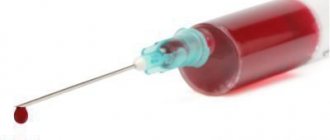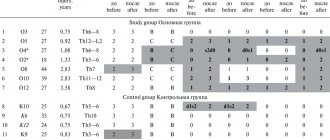Combination of alcohol and caffeine
There is an opinion among the masses that coffee helps to avoid excessive intoxication, as well as quickly bring the drunk to the senses. Scientists have refuted this misconception. They also diagnosed significant harm that is caused to the body when these two drinks are combined.
Caffeine before drinking alcohol . If you drink a small cup of coffee half an hour before the holiday, the drink will not be superfluous at all. It will significantly reduce the harm from ethyl alcohol. A coffee drink taken before alcohol triggers the production of special enzymes in the liver that break down alcohol molecules.
Milk proteins coat the stomach, preventing ethanol from being quickly absorbed into the blood. Thanks to this, intoxication occurs more slowly.
Taking two drinks at the same time . The combination of caffeine and cognac can be considered classic. However, this can cause significant harm to the body. After all, they act on the body in completely different ways. Coffee stimulates the body, increases blood pressure, and constricts blood vessels. Alcohol helps calm the nervous system, lower blood pressure, dilate blood vessels, and relax.
The body begins to experience stress and high loads, as two completely opposite effects are exerted on it. This negatively affects the functioning of the heart, vascular and central nervous systems.
Coffee after alcohol . Many people believe that caffeine in any form can quickly sober up a person. Unfortunately, this is a myth that can lead to serious consequences. A cup of strong drink can give a person a deceptive feeling of sobriety. After which he can make wrong decisions, for example, get behind the wheel, go to dangerous work, and the like.
Consequences that can result from the simultaneous use of these two compounds with opposite effects:
- sudden increase in heart rate;
- formation of predisposition to atherosclerosis;
- development of tachycardia or arrhythmia;
- possible manifestations of hypotension and hypertension;
- increased stress on the heart muscle;
- excessive production of acids in the gastrointestinal tract, which can lead to the formation of ulcers, gastritis and other diseases;
- insomnia, anxiety, unreasonable fear;
- overexcitation of the central nervous system;
- formation of headaches.
Coffee protects the brain
Kirill Stasevich “Science and Life” No. 12, 2018
Photo: kkolosov / ru.depositphotos.com
Coffee is one of the most popular drinks, and it would be strange if science ignored it. Coffee is being studied very actively, and reports of new nuances of its physiological effects, both positive and negative, appear regularly. Negative effects include increased blood pressure, palpitations, digestive tract problems, muscle tremors, insomnia, irritability, and caffeine addiction. If caffeine is poorly broken down in the body, serious heart problems can occur. However, all this usually happens if a person is too carried away by coffee. It is difficult to find a product that would not be harmful if you eat too much of it. To get coffee poisoning, you need to drink somewhere between 50-100 cups - a feat that is impossible even for an exceptional coffee drinker.
At the same time, more and more evidence is being published in scientific journals that moderate coffee consumption can be quite beneficial. Medical statistical studies show that coffee drinkers live, on average, albeit slightly longer. One of the latest works on this topic was published in the summer in JAMA Internal Medicine
: It reports that of nearly half a million middle-aged Britons followed for ten years, coffee drinkers were 10–15% less likely to die over those ten years.
And it's not about any specific British way of life. A year ago, Public Health Nutrition
published another article that looked at residents of the Czech Republic, Russia and Poland, and the conclusions were the same: coffee reduces the risk of premature death. (Of course, such studies take into account other factors that may affect life expectancy.)
The question immediately arises as to why coffee prolongs life, what exactly it does in the body. According to the authors of a paper published last year in the Annals of Internal Medicine
, coffee drinkers have better liver and immune function, and generally have a healthier metabolism.
By improving immunity, coffee also helps the heart. Last year on the Science and Life website we talked about an article in Nature Medicine
that talked about an immune signaling protein called interleukin-1-beta. It is known that the more it is, the more problems with blood vessels, with high blood pressure, and the higher the risk of premature death from cardiovascular causes. This is confirmed by both statistical analysis of clinical data and experiments with animals. Researchers from Stanford University have shown that caffeine and its metabolic products reduce interleukin-1-beta levels. That is, by interfering with the regulation of immunity, coffee (more precisely, caffeine) reduces background inflammation and thereby helps the heart and blood vessels remain healthy. There is also evidence that coffee reduces the likelihood of type 2 diabetes, liver cancer, prostate cancer, some types of breast and skin cancer.
But to more or less briefly mention all the studies that talk about coffee and the heart or coffee and malignant diseases, a separate article will be needed. In the meantime, let's try to figure out how coffee affects the brain. It has long been known that coffee banishes drowsiness and fatigue, improves attention, and that the reason is caffeine. While a person is awake, a substance called adenosine accumulates in the brain, which plays the role of a “fatigue molecule.” Adenosine binds to special receptors on some neurons, suppressing their activity. By calming neurons, adenosine makes a person sleepy.
Figures and facts
Components of coffee aroma
The aroma of coffee is largely determined by the degree of roasting of the beans, since many volatile substances are formed as a result of chemical transformations of sugars and amino acids when heated.
This process is called the Maillard reaction, in honor of the French scientist Louis Maillard who discovered it. Similar processes occur when frying meat and baking bread. More than 800 volatile substances are involved in the formation of coffee aroma. The characteristic aroma is created in total by about 40 of them, and the smell of most of these compounds is not at all associated with coffee. For example, furaneol found in coffee vapor has a caramel odor, diacetyl has a buttery odor, damascenone has a rose and prune odor, and 2-methylfuran, propionic and acetaldehyde have a fruity odor. More specific shades are given by 3-mercapto-3-methylbutyl formate, 3-methylbutanal and methylpropanal, defined as burnt or fried odors, guaiacol gives a “smoky” smoky aroma, and 2-ethyl-3,5-dimethylpyrazine gives nutty-woody notes.The coffee aroma also contains components with a not very pleasant odor: dimethyl sulfide (the smell of seaweed), 2-methylisoborneol (the earthy smell of compost), methyl mercaptan (the smell of rotten cabbage), as well as many others, characterized as unpleasant, pungent and even suffocating. But perhaps without them the aroma of coffee would not be so full and multifaceted.
Caffeine interacts with the same receptors as adenosine. By displacing it from receptors, caffeine stimulates the release of neurotransmitters - substances through which neurons transmit electrical impulses to each other. Neurons begin to work more actively, and this affects not only attention, memory and other higher cognitive functions. Caffeine also acts on those nerve centers that regulate the functioning of the heart, blood vessels, and lungs. In addition, caffeine activates movement control centers, motivation and pleasure centers that are part of the reinforcement system. (Therefore, caffeine addiction may appear as a side effect - the reward system requires more and more caffeine.) It also stimulates metabolism and interacts with various enzymes, including those that synthesize inflammatory signaling molecules for the immune system. The effect of caffeine is felt by the entire body: caffeine helps not only the brain, but also the muscles, making them more resilient. It is known to improve the physical performance of those who cycle, run, etc.
Recently, however, work has begun to appear that suggests that the beneficial properties of coffee are not necessarily associated with caffeine. You can increasingly hear that coffee slows down age-related decline in memory and cognitive functions in general. There are a number of epidemiological studies that suggest that if you regularly drink coffee most of your life, then the risk of developing neurodegenerative diseases such as Alzheimer's disease and Parkinson's disease will be lower; Moreover, for Alzheimer's disease the probability decreases by almost 20%. On the one hand, these are statistical studies, which means judging the cause-and-effect relationship should be done with great caution. But on the other hand, a fair amount of work has already accumulated with a wide variety of statistics. Finally, there are experiments that directly show how coffee may combat neurodegenerative diseases.
As is known, such diseases arise because toxic protein complexes accumulate in the brain. In the case of Alzheimer's disease, these complexes consist of beta-amyloid and tau protein. When certain adenosine receptors (the same ones that put us to sleep) were blocked with caffeine in mice predisposed to Alzheimer's disease, fewer beta-amyloid deposits appeared. Accordingly, the memory in these mice did not deteriorate as much as expected. However, it was necessary to block only certain receptors, because if a lot of caffeine was given, then it began to block everything that was possible, and this only intensified the Alzheimer’s symptoms. Which, again, is quite consistent with studies in which older people who sharply increased their coffee consumption only worsened their cognitive function. In moderation, caffeine helps maintain normal glucose metabolism in the brain - and neurodegenerative disorders are known to be associated with diabetic changes in the metabolism of nervous tissue.
Coffee contains about a thousand different substances, and it is now believed that coffee owes its beneficial properties, at least in part, to plant polyphenols. They work as antioxidants, calm inflammation, reduce the risk of cardiovascular diseases, and improve interneuron connections. Last October in the journal Frontiers in Neuroscience
An article was published whose authors compared the anti-neurodegenerative effects of different coffee extracts. Experiments on mice showed that coffee extracts prevented the formation of protein deposits associated with both Alzheimer's and Parkinson's disease. At the same time, one peculiarity emerged: extracts from regular coffee and decaffeinated coffee worked equally well, provided that the coffee beans were heavily roasted. The researchers came to the conclusion that the problem really is in polyphenols, and the best of them are the so-called phenylindanes - modifications of polyphenols that are obtained during heat treatment. It is clear why extracts from heavily roasted grains showed the best results. Moreover, phenylindanes were the only substances that prevented deposits of tau protein (one of two proteins that begin to misbehave in Alzheimer's disease) from appearing.
But polyphenols are not everything. Last summer in the journal Phytotherapy Research
An article was published by employees of the Research Institute of Physical and Chemical Biology named after. A. N. Belozersky Moscow State University and their colleagues from other scientific centers in Russia and France, dedicated to 3,4-dimethoxycinnamic acid, which is also found in coffee. As it turned out, this acid prevents prion proteins from polymerizing. Prion diseases are similar to neurodegenerative diseases: they also affect the nervous system, and they are caused by toxic protein polymers that form massive deposits in the nervous tissue, thereby killing neurons. All prion diseases - mad cow disease, Creutzfeldt-Jakob disease, and others - are caused by the same PrP protein, which has a normal, healthy form and a pathogenic one. The pathogenic form of PrP, when confronted with a healthy molecule, converts it into a pathogenic one, and this inverted molecule attaches itself to a toxic protein polymer.
It turned out that 3,4-dimethoxycinnamic acid binds to the prion protein PrP and inhibits the formation of toxic complexes. The human cells that were experimented with were better able to resist prion infection in the presence of acid. Of course, we are talking only about cells so far, and in their experiments the researchers did not use coffee extract, but pure 3,4-dimethoxycinnamic acid. Yet it can be cautiously assumed that it protects not only cell cultures, but the brain as a whole, both from prion diseases and related neurodegenerative disorders.
Is it possible to draw any conclusions from all this? Perhaps two: firstly, coffee not only stimulates the brain, but also protects it, and with the help of a variety of compounds. Secondly, the protective effect of coffee is quite long-lasting; it does not fade after a couple of hours. If only the “coffee” stimulation of brain activity also lasted a long time!
Finally, it is worth talking about another article published in the spring of this year in the Bulletin of Experimental Biology and Medicine. In it, employees of the Research Institute of Normal Physiology named after. P.K. Anokhin writes that the effect of caffeine continues through generations. If pregnant rats were regularly given caffeinated water, their male babies were born more active; Moreover, their spatial memory worked better. When these males were put into a water maze, where they had to find the right path and get out onto a floating platform, they learned the right path faster than other males born from mothers who were not given any caffeine. It turns out that the activating effect of caffeine is somehow imprinted in the offspring. Here it is worth recalling the epigenetic mechanism of transmission of parental experience to children, when certain events in the environment change the regulation of parental genes in such a way that in offspring these genes remain in a regulated state. This type of genetic regulation can be likened to molecular “switches”, which in children remain in the same position - “on.” or “off” - the same as for parents. It is possible that epigenetic mechanisms prolong the effects of coffee in humans in the same way.
Dangerous trio
Smokers like to smoke a cigar or cigarette after drinking coffee with cognac or other alcohol. Many people don’t even think that in this way they are causing enormous harm to their health.
Load on the heart . The nicotine contained in cigarettes increases your heart rate. A significant load is placed on the muscle, arrhythmia intensifies, narrowed vessels begin to expand sharply, which can lead to their rupture.
Disturbances in the gastrointestinal tract . Under the influence of nicotine, the synthesis of bicarbonates is significantly reduced. The process of development of ulcers, ileitis, esophagitis, and biliary dyskinesia begins.
Damage and depletion of the central nervous system . Periodic, sharp jumps in blood pressure, significant stress on the heart and blood vessels lead to a weakening of the brain and central nervous system. Over time, severe headaches, irritability, depression, and apathy may develop. Sudden fainting may occur.
Vasodilator effect of coffee
Coffee dilates blood vessels that nourish the heart muscle, kidneys, and skeletal muscles. Thanks to caffeine, the walls of blood vessels relax, resulting in increased blood flow and oxygen supply to the heart. As a result, performance increases; it’s as if a person gets a second wind. This effect is often used by fitness club regulars: after a cup of coffee, the intensity of your workout increases.
But caffeine provokes the release of adrenaline into the blood, which contributes to wall tension, narrowing of arterial vessels and increased blood pressure. With a moderate dose of caffeine, vasodilation and constriction in a healthy person are within normal limits. A certain pulsation of the walls of blood vessels occurs, a kind of “charging” that strengthens them.
However, if a person’s body receives 400–600 mg of caffeine (4–7 cups of espresso) during the day, then over time even healthy blood vessels cannot withstand such a load. When caffeine tablets are taken for weight loss, the daily intake of the substance is exactly 600 mg, and after a course lasting several months, a break of at least six months is recommended.
But an avid coffee lover cannot survive six months without his favorite drink! Therefore, there is only one way out: those who want to keep their blood vessels healthy need to ensure that the daily dose of caffeine does not exceed 400 mg.
“Caffeine gymnastics” is quite dangerous for weakened blood vessels affected by atherosclerosis. When brewing coffee, a harmful substance is formed - cafestol, which contributes to the deposition of cholesterol plaques on the walls of blood vessels.
It should also be taken into account that coffee contains a strong antioxidant - chlorogenic acid, which has a beneficial effect on the walls of blood vessels, but if there are a lot of antioxidants, a blood clot may break off. Therefore, the drink should not be abused if you have varicose veins and thrombophlebitis.
Effect on veins and arteries
Doctors warn patients that they should drink coffee with caution, since the drink in any case affects the condition of the blood vessels of the entire body. If a person suffers from hypertension, low blood pressure or VSD, it is recommended to consult a doctor about the quantities in which you can drink coffee.
Brain
Improvement in general condition and increased performance after drinking the drink is associated with its specific effect on the blood vessels of the brain. Under the influence of caffeine, the arteries in the organ begin to narrow .
In addition, the following changes occur in the brain:
- the need for oxygen is significantly reduced;
- metabolism accelerates;
- the functioning of cortical and subcortical structures is normalized and accelerated;
- the brain parts begin to work much faster;
- Due to the decrease in the vascular lumen, the feeling of drowsiness disappears, the person feels energetic and cheerful.
Heart muscle and coronary arteries
Drinking coffee generally has a positive effect on the myocardium; the drink generally stimulates and normalizes blood circulation. Some cardiologists are of the opinion that it significantly reduces the likelihood of developing angina and heart attack, and reduces pain in the muscle itself in various cardiac pathologies.
The effect of coffee on the myocardium is as follows:
- increasing the speed of passage of the excitation wave with a weakened and decreased pulse;
- normalization of blood circulation in problem areas, thanks to this effect, coffee is useful for atherosclerosis (only in the initial stages);
- increasing resistance to physical activity (the effect is achieved due to the normalization of blood flow).
Because caffeine dilates the coronary vessels, it makes it easier for oxygen to reach the heart. It also becomes saturated with nutrients faster.
This effect makes the drink indispensable for lowering blood pressure, as it helps normalize the latter in the shortest possible time.
Who should not drink coffee, and what illiterate consumption can lead to?
Despite the fact that caffeine has beneficial effects on the body, in some cases it must be completely eliminated from the diet:
- age less than 12 years;
- bearing a child and the lactation period (during pregnancy, drinking coffee is prohibited in the first trimester);
- hypertension, because with this disease, coffee can cause sleep disturbances;
- impaired blood flow in the myocardial area, caffeine can provoke nervous overexcitation and psychosis;
- vascular aneurysm in any area, since the drink can enhance destructive changes;
- presence of craniocerebral lesions;
- glaucoma (increased pressure in the eyeball);
- recovery after surgery.









